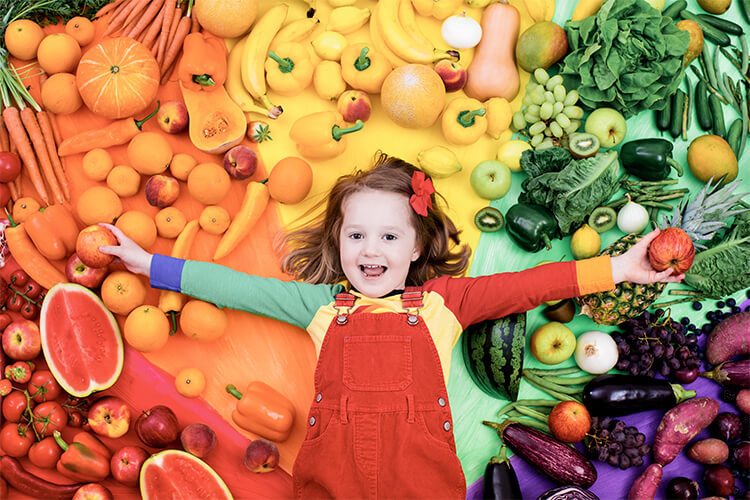How Diet and Nutrition Impact a Child Learning Ability

Many famous and frequently accessible foods in schools in this era. Affect Child Learning Abilities, even though they are necessary for optimal enactment. Numerous widespread menu substances are loaded with sweets, caffeine, substances, and salt leaving children tired, distracted, nervous and tasteless. Which affects pupils’ marks and routine and their performance and attitude.
Everything you need to know about what way food and diet impacts a child learning abilities may be found here.
Early Childhood Nutrition: What To Feed Your Teenager
Although a healthy diet is vital throughout our lives. It is particularly crucial in the early years of our lives when our bodies are developing. Toddlers between the years of 2 and 5 acquire about 12 and 15 pounds and develop around 6 and 9 inches on a median. There is also significant brain development. Providing appropriate food options and instilling healthy eating habits is critical to ensuring proper development in a variety of areas, including:
The growth of the brain is also known as cognitive development. An essential part of this is the development of a child’s capacity to communicate and create relationships with others.
Development of a child’s height and weight, as well as their capability to walk and talk.
In other words, the capacity of youngsters to build and maintain connections with other people.
Let’s look at the decent and bad effects that dietary choices may take on a child’s development at an early age.
Deficiency of Energy and Concentration Can Effect Child Learning Abilities
As per the social order for Neuroscience, saturated fat-rich diets have remained shown to hinder knowledge and reminiscence. Saturated body fat is, unfortunately, the cheapest and greatest willingly accessible food in institutes. Lunchroom mainstays such as potato fries, sentimental desserts, cheesy burgers, and chicken pieces. These food items are lowering child learning abilities before they return to school.
Saturated fat consumption has been linked to an increased risk of Alzheimer’s disease and other forms of dementia by the presence of glucose and sugars in the meal. Carbohydrates are the primary source of glucose, and although glucose is necessary for the body’s energy needs. Consuming too much glucose lowers the body’s energy levels. The body produces insulin to metabolize freshly learned nutrients when glucose is depleted. The stages of glucose in the blood must increase somewhat afterward a nutritious food, and the figure must sense energy.
Kids and grownups on high-level glucose food and diets now suffer a post-meal “crash”. When the physique closes down as it proceeds all of the nutrition since the glucose consumption is consequently significant. Cafeteria foods for children are generally made of white and distinguished pieces of bread, oily cooked foods, syrupy candies, and beverages. Altogether this produces an enormous decrease in liveliness. Resulting in a severe loss of influence, attention, and good cerebral routine. A systematic diet rich in glucose may harm the lungs, eyes, plasma pots, and concerns. These are significant adverse possessions, but they aren’t the only ones caused by high glucose levels.
Malnutrition As A Result Of Food Scarcity
One in three kids in the United States is projected to be heavy. Strangely, together heavy and half-starved youngsters may be considered undernourished in the United States. Uncertainly, you don’t get sufficient nutrients from your meals. You’re suffering from malnutrition /malnourishment, which is more than just a lack of food.
Many American kids may get plenty of calories. But they may miss out on vital food, fiber, and minerals. Per the Mary Gavin of the Nemours Basis, this deficiency in fibers and vitamins has negative consequences. Undernourished kids are more probable to have fitness, educational, and behavioral issues.
The long-term effects of malnutrition on the brain may affect a child’s demonstrative replies. His responses to pressure, knowledge impairments, and other physical problems. “Malnourished kid’s deficits in apparition, well motor abilities, linguistic and individual social skills,” investigators
Margaret Lahey and Shari Rosen observed particular learning. Third of the polled teens likewise stated terrible eating ways, prolonged diseases, and worse academic performance. Kids have easy access to diet, yet that diet is delaying their growth. A child’s attitude and conduct at and outdoor of an educational institute are negatively compressed by a compact diet. Which remained in studies to influence academic enactment.
Promoting a Healthier Food may Lead to Better School Enactment
Sociologists and economists have researched the special effects of a student’s food and nourishment on academic and behavioral results. According to the study, healthier nutrition is linked to improved test results, and programs aimed at improving children’s health also show minor gains in academic test scores. According to other research, increasing the nutritional quality of children’s foods positively impacts academic performance. Like test scores in arithmetic and, presumably, reading, and school attendance. Additionally, behavioral outcomes like absenteeism and disciplinary referrals were better quality. When soft drinks were removed from vending machines in school and replaced with alternative beverages.
To achieve academic success, every student should strive to reach their full potential. If you don’t feed them properly, they won’t be able to reach their full potential. However, if we take action to promote healthier options in schools. Our youngsters will be healthier and organized for a bright future.
At Home, Make a Strategy For Child Learning
Outside of educational institutes, paternities should feed their kids lesser meals and appetizers. Each 3-4 hours to support strong intake and intelligence tasks and enhance their learning abilities. A portion of healthy food or lunch has been shown to reduce symptoms of exhaustion and stress within 30 minutes. According to studies, giving youngsters a steady supply of healthful glucose promotes their liveliness and concentration.
Some Ideas for Fit School Mealtimes for Your Kids to Enhance Child Learning Abilities in Them
Normal fruits, veggies, entire grains, and thin proteins. Such as chicken, fish, nuts, and eggs, should be the foundation of every strong mealtime and nosh. Additionally, particular vitamins might be used to enhance a child’s learning abilities. Lecithin’s ironic nourishments, including trifles, soybeans, and wheat germ, may help people strengthen their memory. This mineral is found in various fruits and vegetables, including bananas, melons, avocados, peaches, and nectarines. Evading handled meals and including natural foods in one’s consistent diet can principal to a better body, conduct, and mental ability in the long run.













